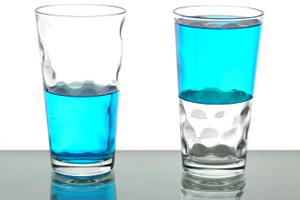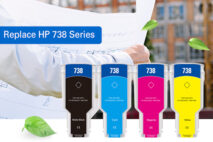As 2016 ended, the Supreme Court of the United States indicated that it will take up the matter of Impression Products v. Lexmark International in 2017. The high court’s findings could fundamentally alter the patent-exhaustion doctrine in the United States, either making it easier or more difficult for U.S. patent holders to retain patent rights in a product after first sale. Third-party supplies vendors will be watching closely as this will be the remanufacturing industry’s most important case in two decades.
In addition to having enormous implications for the supplies industry, the case poses an interesting dilemma for the Zhuhai, China-based cartridge component manufacturer Apex Technology. Apex markets chips and other supplies to the remanufacturing industry and several of its affiliated companies market finished cartridges. As a key player in the remanufacturing industry, one would assume that Apex would like to see a ruling in favor of the plaintiff, Impression Products. However, last year Apex worked with a group of Chinese investors to acquire Lexmark (see “It’s a Done Deal: Apex Has Acquired Lexmark”). As one of the OEM’s co-owners, it seems only natural that Apex would like to see Lexmark prevail. And therein lies the rub.
Some Background
For years, we have closely followed the twists and turns in the litigation between Lexmark and Impression Products as the case made its way on to the U.S. Supreme Court’s 2017 docket. The litigation that ultimately became Impression Products v. Lexmark International got its start as a patent-infringement suit filed by Lexmark against numerous companies (but not Impression Products) in the U.S. District Court for the Southern District of Ohio in 2010 (see “Part 3: Lexmark Lawsuit Targets Ninestar, Print-Rite, and Others”). In the complaint, Lexmark alleged that various Asian third-party supplies manufacturers (including Ninestar, Apex’s cartridge manufacturing arm) and their U.S.-based channel partners were marketing infringing new-build compatibles and remanufactured toner cartridges used in dozens of Lexmark monochrome machines.
Along with filing a complaint in district court, Lexmark requested that the U.S. International Trade Commission (ITC) investigate the matter and issue a general exclusion order (GEO) protecting the U.S. market from the importation of infringing products. After the parties in the Lexmark investigation defaulted, the Commission awarded Lexmark the GEO it sought (see “U.S. ITC Issues Final Determination in Lexmark Toner Cartridge Patent-Infringement Complaint”).
Despite all the parties settling with Lexmark in the parallel federal district court litigation, the case remained open because Lexmark named some “John Doe” defendants and told the court it planned to name these defendants in an amended complaint. Lexmark began a letter campaign in the spring of 2012, urging numerous remanufacturers and resellers to settle with the OEM or risk being named in the suit (see “Lexmark Warns U.S. Remanufacturers to Settle Now or Be Named in Infringement Suit”). While many companies settled with Lexmark rather than go to trial, others did not, and so the OEM eventually named additional defendants, including Impression Products, to its Ohio case in 2013 (see “Lexmark Files Amended Complaint Naming John Does in Ohio Lawsuit”).
In the end, all the defendants settled with Lexmark except for one holdout—Impression Products. The judge in the Southern District of Ohio suit found in Lexmark’s favor on one key issue (that Impression Products infringed by selling remanufactured cartridges using empties first sold overseas, in which Lexmark retained its patent rights), but found in Impression Products’ favor on another (that Impression Products’ sale of remanufactured Return Program cartridges did not infringe Lexmark’s patents because Lexmark had exhausted its patent rights in these cartridges) (see “Impressions Products Wins One, Loses One Motion to Dismiss Lexmark Lawsuit” and “Lexmark Lawsuit in Ohio Comes to an End, Appeals Likely”).
In the summer of 2014, both parties appealed the decision to the U.S. Court of Appeals for the Federal Circuit (see “Lexmark and Impression Products Appeal: Why You Should Care”). Last February, the appellate court ruled in Lexmark’s favor and reaffirmed previous rulings that make it possible for patent holders to avoid patent exhaustion for products sold overseas or sold with single-use/no-resale restrictions (see “Federal Circuit Finds in Lexmark’s Favor, Upholds Jazz Photo and Mallinckrodt” and “Appeals Court Hands OEMs a Big Win, but Impact on U.S. Remans Will Be Limited”). Specifically, the appellate court reaffirmed Mallinckrodt, Inc. v. Medipart, Inc., a 1992 decision allowing patent holders to retain certain protections on patented articles sold with what was termed a “lawful and clearly communicated” single-use/no-resale restriction. The appellate court determined that Impression Products infringed Lexmark’s patents by remanufacturing Return Program cartridges, which are sold with just such a restriction. The second matter pertains to the 2001 decision in Jazz Photo Corp. v. International Trade Commission. This ruling allows U.S. patent holders to retain U.S. patent rights in articles that are first sold abroad. The appeals court agreed with the Ohio court that Impression Products had infringed Lexmark’s patents by remanufacturing empty cartridges that were first sold outside of the United States.
Impression Products then filed a petition for a writ of certiorari with the U.S. Supreme Court last March, which set the stage for the upcoming hearing (see “Impression Products Appeals to the Supreme Court”).
The Apex Connection
To the best of our knowledge, Lexmark did not implicate Apex in the Ohio lawsuit and the parallel ITC investigation, although various companies associated with sibling company Ninestar were named in both. However, Apex has other connections with the case beyond being a co-owner of Lexmark
Although a leading components supplier when Lexmark initiated its legal actions, Apex was relatively obscure in 2010. With annual revenue estimated to be well under $100 million at that time, Apex was also tiny compared to the OEM. And while the company claimed to be producing hundreds of millions of chips for a wide variety of cartridges from various OEMs, it had managed to avoid the courts. We are aware of only one lawsuit involving Apex. In 2014, HP filed a patent-infringement lawsuit against the company and some Ninestar group companies, accusing them of marketing infringing inkjet cartridges (see “HP Sues Ninestar and Apex Micro for Patent Infringement”). The matter was quickly resolved, however. A few months after filing the suit in the U.S. District Court for the Northern District of California, HP announced it had settled the case (see “HP Ends Patent-Infringement Complaint against Ninestar and Apex”).
While Apex has largely managed to avoid OEM lawsuits, the same cannot be said for some of its closest affiliates. Apex’s origins go back to the establishment of Ninestar Technology (also known as Zhuhai Seine Technology Co., Ltd.) in 2001, and Ninestar and Seine have been involved in numerous cases. Of the 24 companies named in Lexmark’s 2010 suit, 13 were Ninestar and Seine affiliates along with some of their U.S.-based distributers and retailers. Apex was formed to supply chips to Ninestar internally, and it was spun off as Apex Microelectronics in 2004 and would later become Apex Technology. After the spinoff, Apex retained close ties with Ninestar, Seine, and other related Ninestar/Seine subsidiaries. Ninestar was founded by Dongying Wang, who is also known by his English name, Jackson Wang, and Apex is run by his brother Dongjie Wang—or Jason Wang.
The aforementioned Lexmark and HP lawsuits are not the only ones that have named Ninestar as a defendant over the years. Ninestar, Seine, and a bevy of their affiliates, distributors, and channel partners have been hauled into courts around the world by various OEMs for a host of intellectual property (IP) violations. Over the past 10 years, Canon, Epson, HP, and Samsung have accused Ninestar/Seine of encroaching on their IP. Last year, the U.S. Customs and Border Patrol announced that it had seized a shipment of banned Canon toner cartridges from China bound for Ninestar Technology Co. based in Chico, CA (see “Welcome to 2016: Ninestar and Six Others Are Issued Seizure Orders”). Ninestar and its affiliates also have the dubious distinction of being slapped by the ITC with a $20.5 million fine, which was the largest fine the Commission had ever levied. (That fine was later lowered to $11.1 milllion.)
Horns of the Apex Dilemma
Given the Ninestar companies’ legal history, it seems more than a little ironic that Apex (and by extension Ninestar) might find themselves supporting Lexmark in its bid to retain certain patent protections. There was a time, not very long ago, when Apex and Ninestar would have fought Lexmark—or any other OEM—tooth and nail to have IP protections lifted so that cartridges could be remanufactured without the risk of a lawsuit.
Indeed, in a failed bid to get the ITC’s fine overturned, Ninestar urged the Supreme Court to address one of the patent-exhaustion issues the Court is now taking up, the Jazz Photo decision, or as Ninestar then put it, “Whether the initial authorized sale outside the United States of a patented item terminates all patent rights to that item” (see “Fat Lady Has Sung for Ninestar: Supreme Court Won’t Review Appeals Court Decision on ITC Fine”). It seems the Court feels that the Impression Products v. Lexmark International case may be a cleaner vehicle to address this issue than was Ninestar’s appeal.
With its huge selection of chips and other components for remanufacturing cartridges, the fewer barriers to remanufacturing the better Apex’s business. But now, as a Lexmark stakeholder, Apex (and, again, by extension Ninestar) will presumably fight tenaciously to protect its OEM’s IP. A decision from the Supreme Court in Lexmark’s favor could prove to be a mixed blessing for Apex.

Whatever the Supreme Court decides in the Impression Products v. Lexmark case, Apex’s glass is either half empty or half full. Either way, it ain’t a full glass!
The Mallinckrodt and Jazz Photo decisions that Impression Products has successfully persuaded the Supreme Court to reexamine have adversely impacted the availability of empty cartridge cores in the United States. Nothing affects the remanufacturing industry—and thus demand for Apex’s components—as much as empties availability. Empty cartridges are the essential raw material for remanufacturing—no empties means no remans. So, to keep selling chips and components, Apex needs an ample supply of empty cores. Because empties are traded like commodities, core prices follow the age-old law of supply and demand, and this holds sway on the profitability of Apex’s component business. The lower the price of empties, the better margin opportunity for Apex. It can be easier to charge more for a chip when the price of the empty it will be used on is cheap. Remanufacturers may opt not to offer a certain SKU if the core and chips are too expensive.
Of course, any desire Apex may have to sustain cartridge component sales will be countered by the need to preserve the protections Lexmark’s patents provide. According to Lexmark’s 2015 annual report, the company has a portfolio of more than 1,500 U.S. patents with approximately 371 pending U.S. patent applications. The firm said it also has some 837 foreign patents and pending patent applications. Beyond Lexmark’s patents, Ninestar reportedly purchased a bundle of several hundred patents from Toshiba a few years ago that it uses in its Pantum printer line. All this IP is quite valuable, and deals involving licensing and cross-licensing IP are an important part of an OEM’s business. It would be in an OEM’s best interest to ensure all its IP protections remain as strong as possible.
Thus, Apex and Ninestar/Seine find themselves in a quandary. If Apex is able to maintain the legal successes that Lexmark has achieved, then SCOTUS will uphold the Mallinckrodt and Jazz Photo decisions, which will limit the availability of empty cores for remanufacturing. If Lexmark (and Apex) do not prevail and SCOTUS overturns or in some way limits Mallinckrodt and Jazz Photo, it is all but certain that more remanufactured cartridges will be produced including more remans for Lexmark machines.
Of course, one could say that our assessment is upside down and Apex faces a win-win: the U.S. Supreme Court’s ruling will either benefit the Chinese firm’s components business or its Lexmark organization. It all depend if you see a glass as half full or half empty.
Either way, we’ll be watching and reporting all that we see. Stand by!






